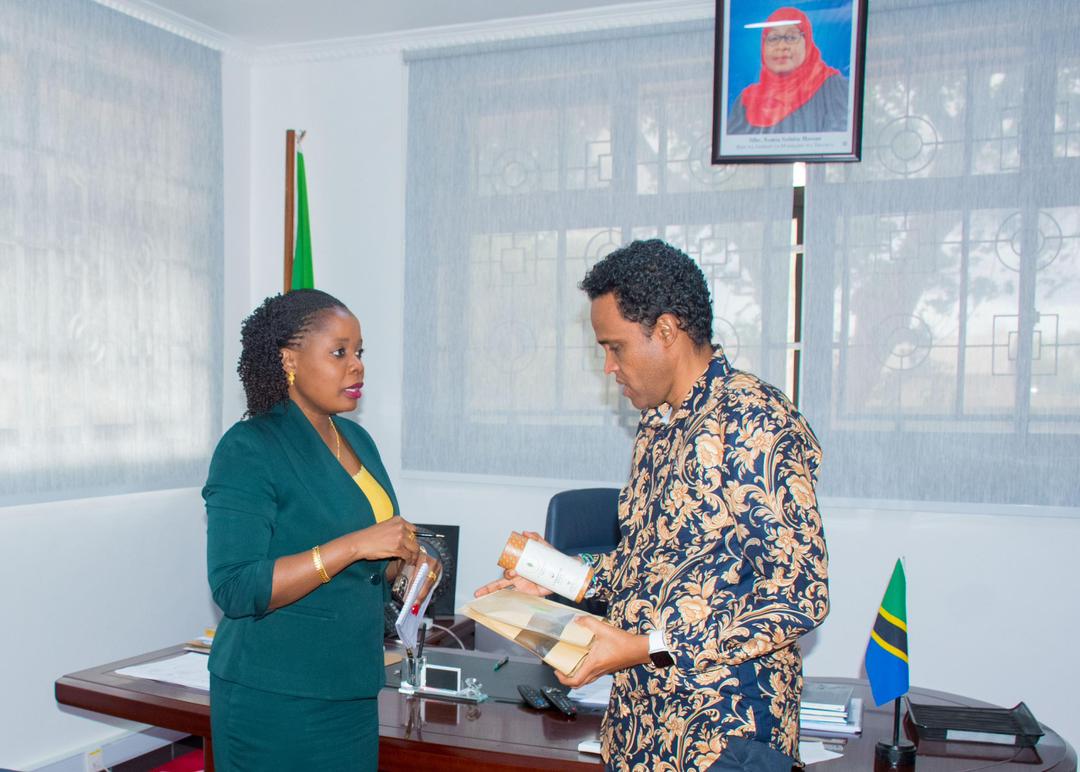By Anthony Muchoki
In an era where agricultural innovation is paramount to national development, Tanzania is witnessing a transformative shift in its tea industry, thanks to the visionary leadership of the Minister of Agriculture, Hon. Hussein Bashe (MP). His recent directives for the Tanzania Tea Board (TBT) and the Tanzania Small Tea Farmers Development Agency (TSHTDA) signal a new dawn for the country’s tea sector, promising to elevate it from grassroots production to a prominent player in the global markets.
On November 22, 2023, a pivotal meeting in Dodoma marked the beginning of this ambitious journey. Here, Hon. Bashe unveiled a comprehensive plan following the presentation of a proposal for constructing seven innovative small tea farmers’ factories. This initiative, a collaboration between TTB, TSHTDA, Care International Tanzania, and Kazi Yetu Limited, is more than a project – it’s a blueprint for the future of Tanzanian tea.
A Visionary Approach to Agriculture
Hon. Bashe, known for his advocacy for agricultural advancement, has set his sights on modernizing the tea industry. His strategy focuses on integrating state-of-the-art technologies in irrigation and seed production. This modernization is not just about technological enhancement but also about rethinking existing practices to emphasize quality, efficiency, and sustainability.
The Minister’s target to double tea production from 1,000 to 2,000 kilograms per hectare annually is not just ambitious but revolutionary. It underscores a commitment to transform the livelihoods of small tea farmers, empowering them to be significant contributors to Tanzania’s economy and to the global tea market.
Revolutionizing Tea Sales
One of the most noteworthy aspects of Hon. Bashe’s plan is the reform of the tea selling process. By moving away from outdated selling methods to utilizing the Dar es Salaam tea auction, the Minister is aligning tea production directly with market demand. This approach is expected to foster a more profitable and sustainable sales model, benefiting farmers and consumers alike.
The importance of this shift cannot be overstated. It signifies a move towards a market-driven approach, ensuring that Tanzanian tea can compete effectively in international markets while providing fair compensation to the growers.
Adherence to Standards and Regulatory Compliance
Mr. Gerald Mweli, the Permanent Secretary of the Ministry of Agriculture, emphasized the importance of following regulatory and professional standards in this transformative journey. This attention to detail, legal compliance, and documentation ensures that the advancements in the tea industry are not only innovative but also sustainable and responsible.
Commitment to Timely Execution
The dedication to realizing these ambitious plans within a set timeframe, as expressed by Ms. Mary Kipeja, Director-General of the Tanzania Tea Board, reflects a collective determination. It’s an embodiment of a broader commitment within Tanzania’s agricultural sector to not only innovate but to do so swiftly and effectively.
State-of-the-Art Infrastructure
Ms. Tahira Nazari, MD of Kazi Yetu, detailed the construction of seven advanced tea factories. These facilities are not mere buildings; they are the physical manifestations of Tanzania’s commitment to a brighter future in tea production. The inclusion of five processing plants, one packing factory, and one for packaging materials indicates a holistic approach to tea production, from leaf to cup.
Setting a New Standard
With this bold and comprehensive initiative, Tanzania is not just redefining its tea industry; it is setting a new standard for agricultural development in Africa. It is a testament to the power of visionary leadership, strategic collaboration, and a steadfast commitment to innovation and sustainability.
The journey ahead for Tanzania’s tea industry is filled with potential. As these plans unfold, the industry is poised to become a beacon of modern agricultural practices, blending traditional knowledge with cutting-edge technology. This is more than just an economic venture; it’s a move towards a more prosperous, self-sufficient, and globally competitive Tanzania.
This transformation of the tea industry under Hon. Bashe’s guidance is a shining example of how focused leadership and innovative strategies can yield tremendous benefits for a nation. It is a story of hope, ambition, and the endless possibilities that await when a country harnesses its resources, talent, and vision to create a better future for its people. As the world watches, Tanzania is not just growing tea; it’s brewing a brighter future for all.
